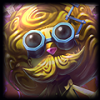I have a suggestion in a bit of a different vein. Well, actually it looks like the same vein as Serapth, but I'm going to reemphasize and expand on it.
You mention you started with batch scripting and have used various other languages. Also, you say you're 15 - am I correct in inferring that you've never taken a formal class in computer science? There's no shame in that, but it does mean that there's something you have to be aware of.
Learning a language isn't really what you need to do. It's likely that your knowledge of programming is all imperative. Again, there's no shame in that, but it means that if you jump headfirst into making a game, or even learning a language, you're going to be getting a bunch of information that you won't know what to do with. I tried to learn C++ before studying computer science, and I thought I knew what I was doing; I was, however, sorely mistaken. Not only did I not know what I was doing, I didn't know that I didn't know what I was doing. There's an entire, rich, important world of computer science out there, of paradigms from declarative to functional to object-oriented, and until you wade into it, you probably won't truly understand what you're doing, and more importantly, why you're doing it. It can be extremely frustrating both because bugs will pop up that you don't understand and because your design will be, in a word, poor. At least, that's what I experienced, and it was very disheartening.
To that end, I'd recommend picking up and going through introductions to computer science. I actually have something that might be perfect for you - check out
this. It's an introduction to computer science done by MIT - it requires little in the way of prerequisites, and teaches important, foundational techniques in CS. Things like debugging, container types, basic algorithms, and recursion. Best of all, it uses Python as its main language - if you do the problem sets, by the end you'll be filling out a skeletal program to model virus populations within an organism. It only takes a few weeks if you study hard every day. Though I haven't done it myself, there's also
this, which is the same course but designed for learners over the internet. Remember, you'll be learning Python this way - but rather than the shallow understanding you'd get from just skimming documents and tutorials, you'll get a rich understanding that you'll be able to apply to other languages and problem areas.
That all may seem harsh, but I see myself about ten months ago in your posts. I had brief experiences with languages and thought I knew enough to get started making a game. All I did was throw together code so poorly that I got frustrated and gave up. I spent the next several months learning everything I could from MIT's courses and various forums. I'm far from an expert - I've only actually finished about three of the introductory courses, and my own game project is basically only at the point where I have colliding blocks on the screen. But I do know that if I hadn't gone through those courses, my code base would be a mess and I probably would have given up on programming entirely. Though my code is still terrible, it's leagues ahead of what it was, and uses many important concepts, like abstraction barriers and data hiding, that I didn't even know existed before.
It's a long road, but ultimately it's one of the few that will get you where you want to be. I wish you the best of luck.




